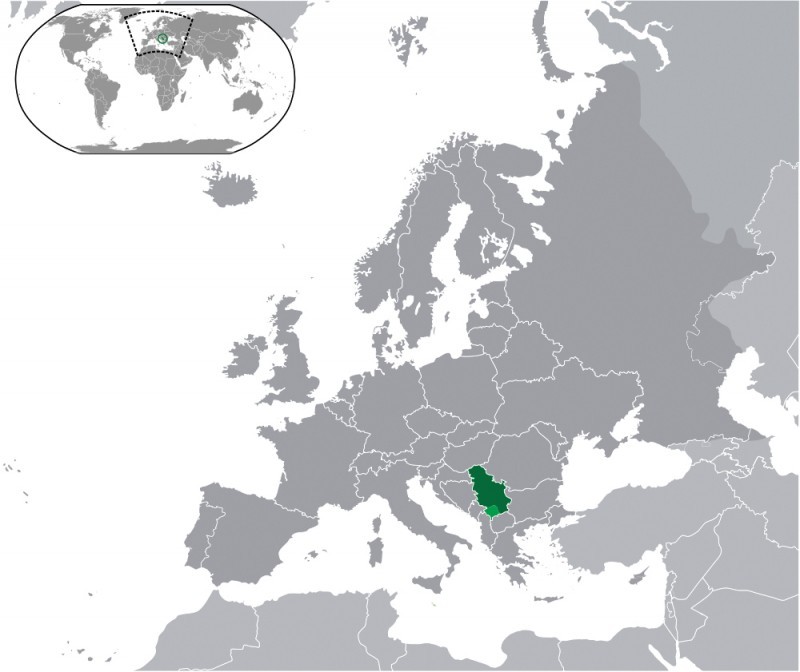Students visit Serbia to assist with animal overpopulation problem
Courtesy photo: Wikimedia Commons
Location of Kosovo (dark green), Serbia (darker grey) on the European continent.
November 18, 2010
Amanda Steffen and Elizabeth Wormley traveled halfway across the world to help deal with a multitude of dogs.
Steffen and Wormley, fourth-year students in veterinary medicine, worked at an animal shelter in Serbia that is helping with dog overpopulation. They also worked to help build ties between the College of Veterinary Medicine and the Veterina Beograd, Faculty of Veteterinary Medicine in Belgrade.
The shelter they worked at caught dogs, then spayed/neutered, micro-chipped, vaccinated and released the animals where they were caught. Some dogs were put up for adoption. Aggressive dogs were kept at a separate location for the remainder of their lives.
“They do have a dog overpopulation problem,” Steffen said. “The shelter is strictly doing dogs at this point because they have dogs running loose in the streets.”
The overpopulation is the result of many policies in place there.
Despite the overpopulation problem, people in Serbia are dealing with the overpopulation in a humane manner, the ISU students said, contrary to what other sources have indicated.
“[The perception that Serbians are addressing the problem inhumanely] is completely inaccurate, and [it is] unfortunate that such incorrect information is readily available,” Wormley said. “In Belgrade, Veterina Beograd is under the control of city government and is responsible for care of all stray, feral and abandoned dogs.
The country uses a catch-neuter-release program to deal with overpopulation. Wormley said there are seven teams of dog catchers that go out and capture dogs. The captured dogs are then taken to an animal shelter where they undergo physical examinations and necessary treatment. They are then sterilized and vaccinated as needed.
“The city as well as the citizens have decided that they want to deal with this in a no-kill way,” Steffen said.
If the dogs were previously captured, they are given new vaccines if it has been a year since their capture. After spending several days recovering, or longer if needed, some dogs are put up for adoption.
Wormley and Steffen were the first American students to be involved in this work in Serbia. This was made possible largely by Eldon Uhlenhopp, professor in veterinary diagnostic and production animal medicine, who has made many trips to Serbia over the last decade.
Wormley also attributes the opportunity to her connections via a study-work program with Claudia Baldwin, associate professor of veterinary clinical sciences, and Suzanne Millman, associate professor of veterinary diagnostic and production animal medicine.







